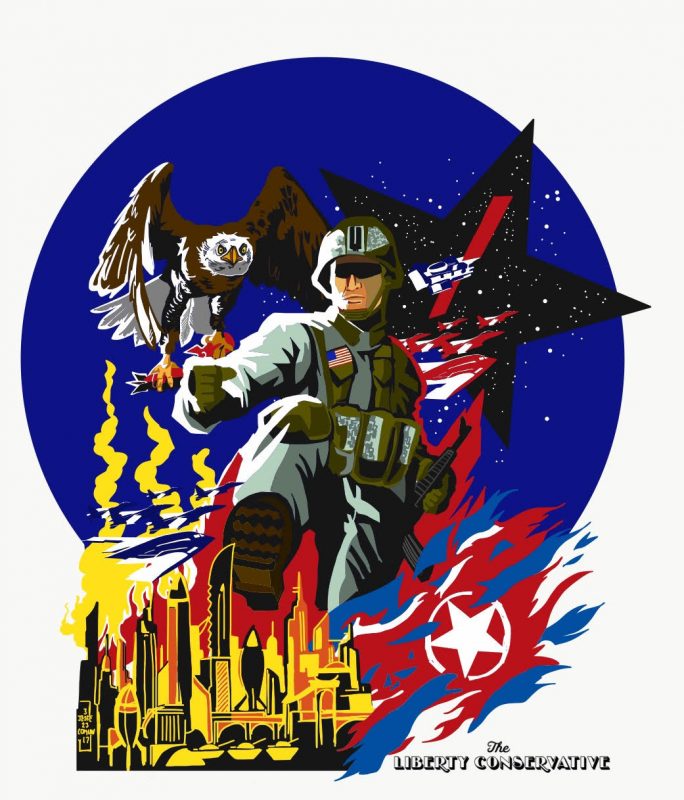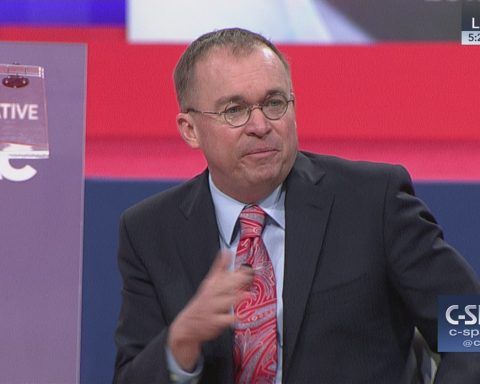One of the most insightful observations made by Sun Tzu in his seminal masterwork, The Art of War, is the following: “When you surround an army, leave an outlet free. Do not press a desperate foe too hard.” Tu Mu was more specific in his elaboration on the point; the ancient Chinese poet said the enemy must be made to think “that there is a road to safety, and thus prevent his fighting with the courage of despair.” The beauty of Sun Tzu’s tome is in its timelessness; the succinct profundity of his proverbs is as relevant today as it was in the 5th century BCE. In today’s world, there is no place where Sun Tzu’s wisdom is needed more than the Korean Peninsula, specifically the territory to the north of the 38th Parallel, the tiny nation-state of the Democratic People’s Republic of Korea. We in the west know it by a much shorter epithet, simply, North Korea.
In 1950, North Korea’s Soviet-backed founder, Kim Il Sung, launched a surprise attack across the 38th. It was a devastating sucker punch that initiated a three-year conflagration during which every major city in the north was destroyed. The US military response was labeled a “police action” and historians have called it a “forgotten war.” Neither titles are true, and both false monikers are instructive for coming to an understanding of where relations currently stand between North Korea and the US, and where they might be going in the not so distant future.
North Korea never forgot the war and rightfully so. The devastation unleashed against them left an indelible scar on their nation which has come to entirely define their culture and collectivist worldview. They are obsessed with hatred of the United States and frankly, they have every right to hate us. The Curtis LeMay way of making war is why we have the Hague, it’s essentially the strategy of committing crimes against humanity until the enemy can’t take any more. LeMay had already perfected the strategy during WWII against the Japanese and he once remarked of North Korea that the US aerial campaign had wiped out twenty percent of their population.
In addition to the scorched earth doctrine, the concept of “police actions” has come to define much, if not most or even all, of America’s militaristic foreign policy. An anomaly became standard operating procedure. And the executive branch’s frequent use of the UN to circumvent our proper constitutional processes for going to war has put us in a weakened position at home and abroad both in terms of respect for our rule of law and in real physical effects on the battle-readiness of our fighting forces.
The strategy of prolifically projecting overwhelming force has caused us to become accustomed to having our way with the world while simultaneously losing our prestige and actual might. It entails innumerable risks and horrific consequences. It created our most vicious foe, the desperate regime of Kim Il Sung as now embodied in his grandson, Kim Jong Un. In seeking to confront and defeat communism on the Korean Peninsula we instead empowered it by our brutality and the presupposition of our own greatness. We accomplished the exact opposite of what we set out to achieve.
The self-defeating policy of global American hegemony has been in place ever since the “forgotten war” ended exactly where it began. Our two nations haven’t engaged in open hostilities since 1953, though the war, concluded with an armistice, never truly ended. The warhawks in Washington, D.C., eager for conflict but not too eager to take on North Korea’s enormous army of tanks and artillery as well as unconventional nuclear weapons, have turned to economic tools to isolate and punish the Kim family and its surrogates. The party fanatics and military apparatchiks of Pyongyang have largely survived the bilateral and multilateral sanctions imposed by the US and the United Nations. They still have their liquor and delicacies and the splendor of the Arirang while the common folks starve to death. But deep down the party elders most certainly understand that songun politics have bled dry their country to provide them with a military boasting tremendous manpower, but also technology that in no way could stand up to the challenge of even a faltering US military.
North Korea’s reliance on foreign aid, in large part from China, has made a mockery of the juche philosophy of autarky. Far from being self-reliant, North Korea is a belligerent panhandler. When aid from Beijing proves insufficient to keep the regime well fed and the brainwashed masses adequately satisfied, Pyongyang turns to counterfeiting US dollars and selling arms. The country never really recovered from a state-imposed famine twenty years ago which killed upwards of four million people. Kim Jong Un was educated in Europe and it’s not unreasonable to suggest he’s likely a highly intelligent person. It doesn’t need to be explained to him that the money spent on multiple underground nuclear weapons tests could have been better spent on the health and well-being of his people. He knows it. His cadre of loyalists know it too. They know what they’re doing when they launch missiles that fail with money that should have been spent on medicine. They’re fully aware they’re mass murderers and until now there hasn’t been much the world could do to stop them.
After decades of the United States condemning and sanctioning North Korea but doing little to diminish their ambitions, Secretary of State Rex Tillerson has announced the end of the era of “strategic patience.” The US will no longer stand idly by as Kim Jong Un test fires ballistic missiles with the goal of reaching our west coast. The US will no longer tolerate the North Korean nuclear weapons program. Additional pressure will be brought to bear on Beijing to wield greater influence over Pyongyang. The party is over.
As with any major alteration in foreign policy, the pivot away from strategic patience carries with it a number of risks. Mr. Tillerson, and his boss, have apparently made a calculation that waiting for Pyongyang to finally perfect their ICBMs is a greater risk than unseating the Kim regime, a scenario recently played out in a joint training exercise between the US and South Korean militaries.
With any luck, Mr. Tillerson, and especially his boss, understand the lessons of history. Hopefully, they understand Sun Tzu’s warning about a cornered foe. North Korea has no escape route. They have nowhere else to go. They have no expectation of leaving the battlefield and going home. They are home. A desperate North Korea, boxed in and expecting an imminent US attack, might just decide they no longer have anything to lose. Kim Jong Un might take a page out of his grandfather’s playbook and launch another surprise attack. The North knows any war with the US will be an all-or-nothing affair, it will be suicide, they will lose everything. Their only victory condition is to do as much damage as possible before they are annihilated.
And they can do plenty of damage.
Mr. Kim’s mighty array of artillery is aimed directly at Seoul, one of the most densely populated cities in the world which hosts a powerhouse economy. A surprise attack would cause immediate carnage on a scale none of us have seen in our lifetimes and the economic ramifications would be felt worldwide. In addition to their artillery and armor, North Korea possesses almost two hundred thousand special operations soldiers and a far-reaching network of tunnels that lead under the DMZ. The damage North Korea could do within the first few hours of a surprise attack would be brutal, wide-ranging, and would likely take decades to fully recover from.
And the US response would end their campaign and country once and for all. We can crush them in a straight up fight but not without great cost in lives and treasure.
Let’s hope it doesn’t come to that. North Korea doesn’t stand a chance at going toe-to-toe with the US, all it can hope to do is go out in the blaze of glory, and they would. It doesn’t have to happen that way. Now is the time for Secretary Tillerson and President Trump to realize the best strategy isn’t one in which the US wins a military victory over Pyongyang; the price tag would be staggering and with little to show for it but carnage and chaos. The threat of a human catastrophe might be enough to compel China to cooperate in the Spratly Islands. It’s not much of a bargaining chip. With any luck, Mr. Tillerson and the president will realize it is in everyone’s best interest to provide the Kim dynasty, and its battered, brainwashed people, a way out. We must not go to war with North Korea, not for their sake but for ours.
Original artwork by Jesse Comeau









